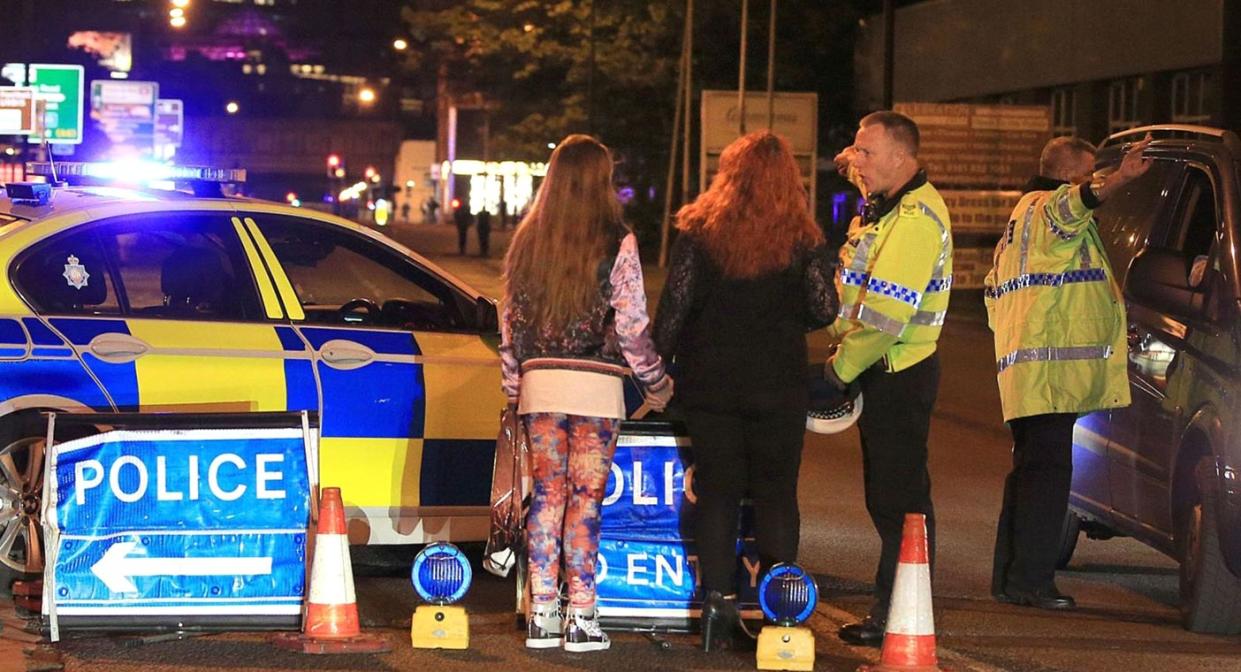MI5 could have stopped the Manchester Arena bombing, report finds

The Manchester bombing could have been stopped “had the cards fallen differently”, the Home Secretary has said.
Amber Rudd told the House of Commons that it was “conceivable” that the suicide bomb attack could have been “averted”.
She said that the attacker Salman Abedi was under investigation at the time of the atrocity, which killed 22, although the intelligence on him had been assessed as not related to terrorism.
Rudd’s comment comes as independent reviews launched by MI5 and police and an independent assessment of the findings by David Anderson QC were all made public.
It found that three terrorists involved in four attacks that hit Britain between March and June this year had at some point been on authorities’ radar,
David Anderson QC said that MI5 came by unspecified intelligence into Abedi prior to the attack. He said that “had its true significance been properly understood” an investigation into the attacker would to be opened.
“It is unknowable whether such an investigation would have allowed Abedi’s plans to be pre-empted and thwarted. MI5 assesses that it would not,” the report says.
It also found that MI5 was “actively” investigating the ringleader of the London Bridge attack at the time of the atrocity, it added.
The UK’s security apparatus faced questions after dozens of victims were killed or injured at Westminster, Manchester, London Bridge, and Finsbury Park in 2017.
It revealed that police and MI5 have foiled nine plots since the Westminster attack in March.
The report found an opportunity was missed to place Abedi on “ports action” after he travelled to Libya in April.
Most popular on Yahoo News UK
Police hunt thugs who ‘strangled’ teenager and ‘forced him to apologise for being gay’
Britain braced for hail, snow and rain as Arctic winds hit and temperatures fall
Britain First supporter gave Nazi salute and shouted ‘white power’ before driving at Muslim curry house owner
Airline crew say they saw North Korean missile from their plane
Shocking video shows how sleeping driver ploughed his lorry into motorway traffic
Westminster attacker Khalid Masood was known to police and MI5 for association with extremists, but was a closed subject of interest at the time of the atrocity in March.
It also reveals how in the days prior to the attack, Masood conducted reconnaissance of Westminster Bridge in person and online, and browsed YouTube for videos relating to terrorism.
Khuram Butt, who led the three-strong gang behind the London Bridge van and knife attack in June, was the principal subject of an MI5 investigation from mid-2015 until the date of the deadly assault.
Another of the London Bridge gang, Youssef Zaghba, was placed on an EU warning list in March last year but a marker which would have automatically identified him as a national security risk was deleted by Italian authorities in January.
In June 2016, MI5 received an inquiry from Italian authorities about Zaghba but the agency has no record of responding — “noting by way of possible explanation that it arrived in the incorrect mailbox”.
Zaghba, and the third London Bridge attacker Rachid Redouane, were never investigated by MI5.
Responding to the report Andrew Parker, the director general of MI5, said the organisation has had to adapt to “unprecedented threat from international terrorism”.
“I welcome David Anderson QC’s independent assurance of our reviews, and we are committed to implementing the recommendations we identified,” he said. “As I said in October, we and our partner agencies used the harsh light of hindsight under independent challenge to ensure we squeezed every drop of learning out of these dreadful events.
“MI5 and our partners continue to bring the full weight of our growing capabilities to counter this new intensity of threat. Our unrelenting focus remains on doing everything in our power every day to keep the country safe.”
Cressida Dick, commissioner of the Metropolitan Police Service said: “Policing and our colleagues in the fight against terrorism will continue to learn and improve. We need to make rapid progress in implementing the recommendations, many of which require new technology, better infrastructures and resources at a time when the threat from terrorism poses significant challenges for police and security services.”

 Yahoo News
Yahoo News 

